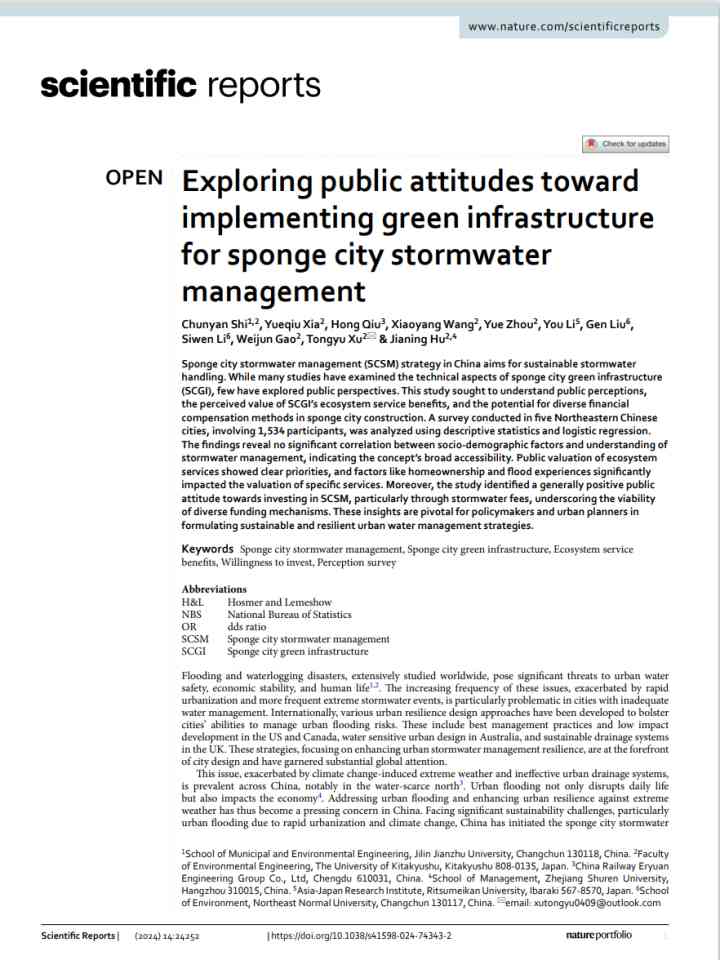Exploring public attitudes toward implementing green infrastructure for sponge city stormwater management
This study sought to understand public perceptions, the perceived value of sponge city green infrastructure (SCGI) ecosystem service benefits, and the potential for diverse financial compensation methods in sponge city construction. Sponge city stormwater management (SCSM) strategy in China aims for sustainable stormwater handling. While many studies have examined the technical aspects of SCGI, few have explored public perspectives. A survey conducted in five Northeastern Chinese cities, involving 1,534 participants, was analyzed using descriptive statistics and logistic regression. The findings reveal no significant correlation between socio-demographic factors and understanding of stormwater management, indicating the concept's broad accessibility. Moreover, the study identified a generally positive public attitude towards investing in SCSM, particularly through stormwater fees, underscoring the viability of diverse funding mechanisms.
The study highlights the importance of developing comprehensive policies to support SCGI, alongside efforts to increase public awareness about its ecological and socio-economic benefits. It also calls for diverse financial strategies, including public investments, stormwater fees, and green bonds, tailored to different socio-economic demographics. Additionally, SCGI solutions should be customized to regional needs to effectively build urban resilience. However, the study's regional focus on Northern China limits the generalizability of the findings, and reliance on survey responses may introduce bias. Future research should expand geographically and include longitudinal data to capture changes in public perceptions and behaviors over time.
Explore further

